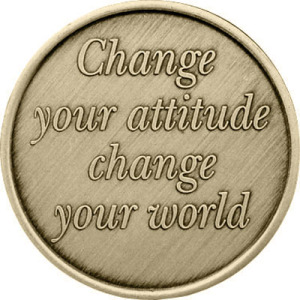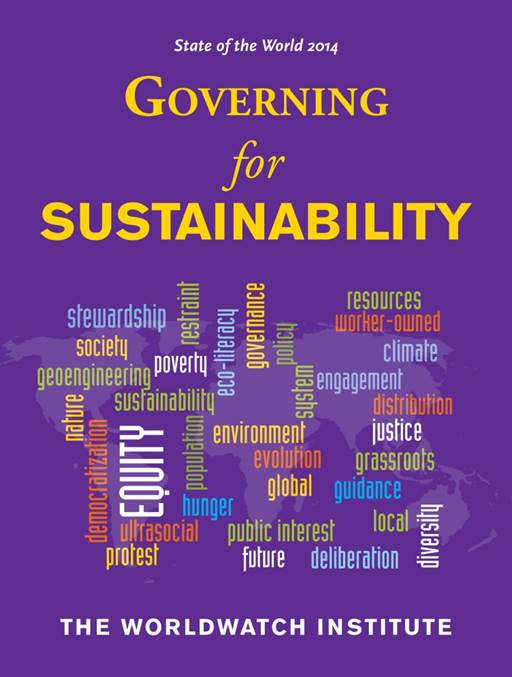Review by Ken Hanson
In State of the World 2014, the Worldwatch Institute has collected essays from some of the leaders in the discussion of world sustainability. Under the direction of Tom Prugh and Michael Renner, more than 28 experts and scholars tackle the premise that “today’s sustainability crisis is much more a political problem than a technical one.” The book is divided into issues of political governance and economic governance. By “governance” the panelists look at the processes used to coordinate in a complex activity or system. Governance, under this definition, applies to systems of rules rather than codified laws. For instance, the rules of economic governance do not necessarily follow the codified laws of economic activities.
In fact, the essays focus more on the role of individuals in making corrections to both codified laws and non-codified, but often as potent, prejudices. Because humans have the ability to change both laws and prejudices, the experts in this book generally are upbeat about humanity’s potential to adapt, but many steps on several important fronts must be taken for the world to reach true sustainability.
 In one way or another the essays on political governance all point to the need for a change in attitude. Knowledge is not enough. As Peter Brown and Jeremy Schmidt put it, “we are not nearly smart enough to manage the complex and inherently indeterminate systems that make life on Earth possible.” Geo-engineering without an understanding by every individual about their role in making earth sustainable is impossible.
In one way or another the essays on political governance all point to the need for a change in attitude. Knowledge is not enough. As Peter Brown and Jeremy Schmidt put it, “we are not nearly smart enough to manage the complex and inherently indeterminate systems that make life on Earth possible.” Geo-engineering without an understanding by every individual about their role in making earth sustainable is impossible.
In much the same way, sustainability through economic governance also depends on individual understanding. As Thomas Palley writes, “the economic evidence shows to need to make financer of the real economy, rather than having the real economy serve finance, as is now the case.”
The strength of this book is the realistic assessment of obtainable steps that could be taken to reach global sustainability for both climate and economies. Each essay suggests mechanisms that can move these obtainable steps forward. Policymakers at all levels must learn how to develop agendas that adequately account for actual natural and human resource limits.
Worldwatch Institute puts out a State of the World report in book form every year, and this year’s Governing for Sustainability is not a casual read. These essays are written by academics, for academics. The ideas presented are complex because the current situation is the result of complex forces. However, the breadth of material presented in the book makes it well worth the effort for those who would like to understand how the world could survive, and even thrive, if humans are willing to adapt.
As Prugh and Renner sum it up: “all governance begins with individuals in communities. Humans are no more isolated actors in politics than they are the independent molecules of mainstream economic theory.”
Only the pressure from awakened individuals and communities to improve governance, at every level, can turn the currently precarious climate and world economy in the right direction.
***************
Professional book review by Ken Hanson ~ Thanks Ken!
Ken Hanson is a former senior editor for McGraw-Hill and managing editor for a group of community newspapers. He now divides his time between freelance writing and volunteer work for community nonprofits.
Read his great review of Stuffocation as well!



